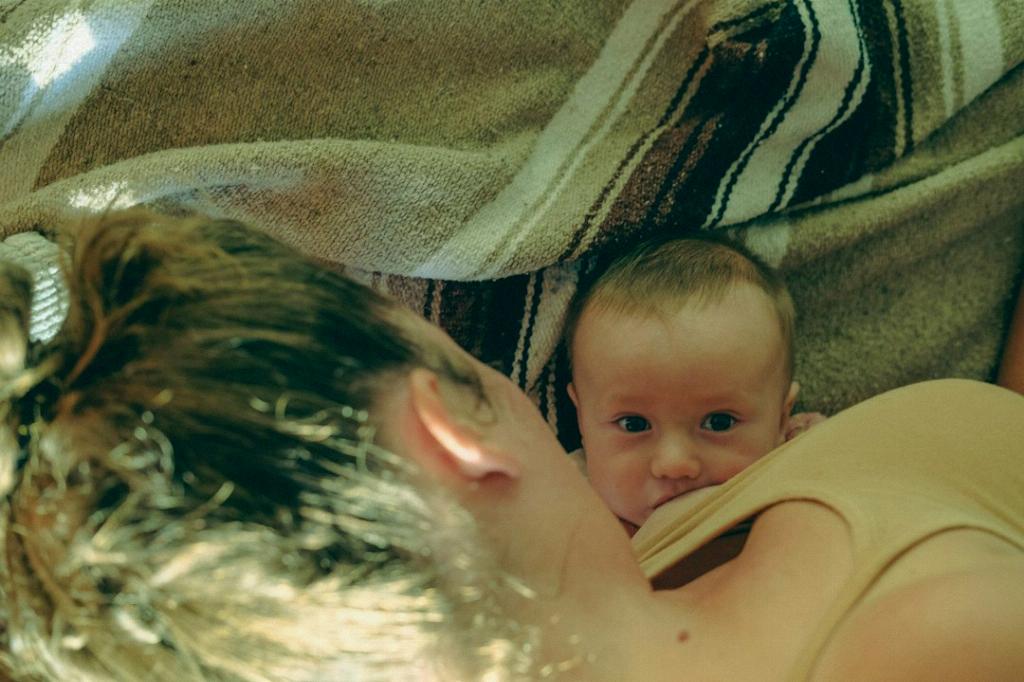When it comes to the question of when to stop breastfeeding, there are a variety of factors to consider. One key guideline to keep in mind is the recommendation from the American Academy of Pediatrics (AAP), which advises exclusive breastfeeding for the first six months of a baby’s life, followed by continued breastfeeding for at least one year. Beyond this point, the decision to wean your child off breastfeeding becomes more personalized, taking into account a range of individual circumstances and preferences.
Physical and Emotional Benefits
Continuing to breastfeed beyond the first year can offer numerous advantages for both the baby and the mother. Breast milk provides essential nutrients and immune support that can contribute to a child’s healthy growth and development. Moreover, the act of breastfeeding fosters a strong emotional bond between mother and child, promoting feelings of security and closeness that can be beneficial for both parties.
Social and Cultural Norms
While the AAP guidelines provide a helpful framework for breastfeeding duration, it’s important to recognize that social and cultural norms can also play a significant role in shaping individual decisions. In some communities, extended breastfeeding is embraced and considered normal, while in others, there may be more pressure to wean earlier. Ultimately, the choice of when to stop breastfeeding should be based on what feels right for you and your child, not on external pressures or expectations.
Listening to Your Child’s Needs
As your child grows and develops, they will begin to express their own preferences and readiness for weaning. Some children may naturally lose interest in breastfeeding as they become more independent, while others may continue to seek comfort and nourishment from nursing. Paying attention to your child’s cues and respecting their individual timeline can help make the weaning process smoother and more positive for both of you.
Supporting a Smooth Transition
If you decide that it’s time to stop breastfeeding, there are steps you can take to support a smooth transition for both you and your child. Gradually reducing the frequency of nursing sessions, introducing alternative sources of comfort and nutrition, and maintaining close physical and emotional contact can all help ease the transition away from breastfeeding.
Embracing a Diverse Range of Experiences
It’s important to recognize that every parent-child relationship is unique, and there is no one-size-fits-all answer to the question of when to stop breastfeeding. Some mothers may choose to continue breastfeeding well into toddlerhood, while others may feel ready to wean earlier. Whatever your choice may be, it’s essential to approach it with an open mind and a sense of compassion for yourself and your child.
Seeking Support and Guidance
If you’re unsure about when to stop breastfeeding or if you’re encountering challenges during the weaning process, don’t hesitate to seek support and guidance from healthcare providers, lactation consultants, or other experienced parents. Sharing your concerns and questions with trusted individuals can help you navigate this important transition with confidence and clarity.
Emphasizing Self-Care and Well-Being
As you consider the question of when to stop breastfeeding, remember to prioritize your own well-being and self-care. Breastfeeding can be a demanding and intense experience, both physically and emotionally, and it’s essential to give yourself permission to set boundaries and make decisions that align with your own needs and desires.
Celebrating the Journey of Breastfeeding
Regardless of when you choose to stop breastfeeding, it’s important to celebrate the journey you’ve shared with your child. Breastfeeding is a unique and deeply personal experience that can create lasting memories and connections between you and your little one. By honoring the sacred bond you’ve nurtured through breastfeeding, you can approach the weaning process with a sense of gratitude and fulfillment.
Continuing to Prioritize Connection and Nurturing
As you transition away from breastfeeding, remember that the bond you’ve formed with your child goes far beyond nursing. By prioritizing connection, nurturing, and loving interactions, you can continue to strengthen your relationship with your child in new and meaningful ways. Embrace the journey of parenthood with an open heart and a spirit of curiosity and wonder.
Exploring New Phases of Parenthood
Stopping breastfeeding is just one milestone in the ever-evolving journey of parenthood. As you navigate this transition, remember to approach it with flexibility, patience, and an open mind. Embrace the new opportunities for growth, learning, and discovery that each phase of parenting brings, and trust in your own instincts and intuition as you move forward on this exciting and transformative path.
Conclusion
In conclusion, the question of when to stop breastfeeding is a deeply personal and individual decision that should be guided by your own values, preferences, and circumstances. By considering factors such as your child’s needs, your own well-being, and the support available to you, you can approach the weaning process with confidence, compassion, and a sense of empowerment. Embrace this transition as a natural and beautiful part of your parenting journey, and trust in your ability to make the best choices for yourself and your child.

